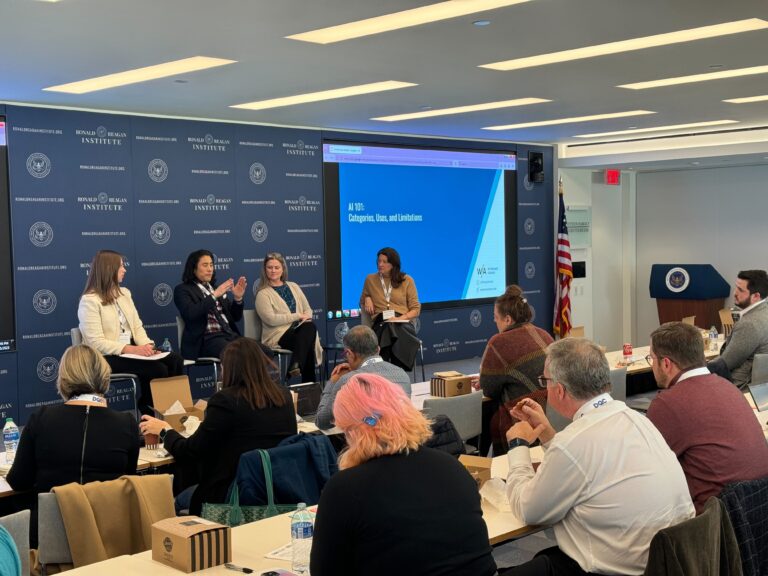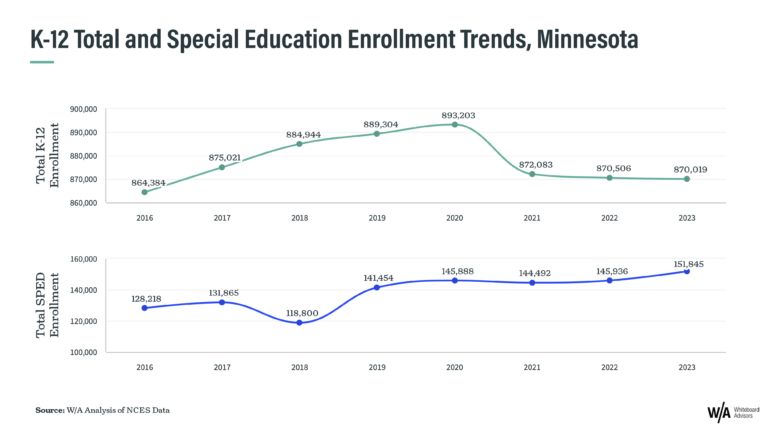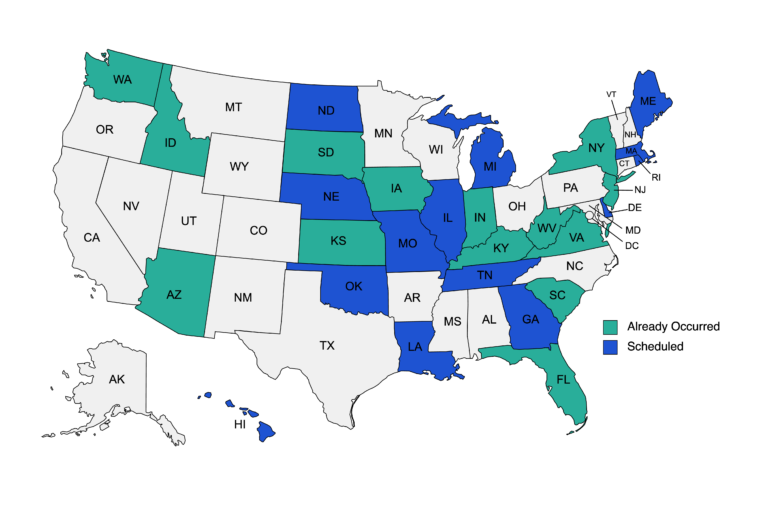Whiteboard Advisors co-hosted a convening with the Data Quality Campaign (DQC) on the growing role of artificial intelligence in K-12 education. Executive Director and President of the Siegel Family Foundation Katy Knight and Whiteboard Advisors’ Erica Price Burns moderated panels with Merlyn Mind CEO Satya Nitta, Code.org Chief Academic Officer Pat Yongbradit, Partnership for Education Advancement Director of Partnerships Cecilia Marshall, and Managing Director of Innovation Strategy at ISTE Tara Nattrass, with opening remarks from DQC Executive Vice President Paige Kowalski.
Across the panels, three key themes emerged:
- We must deepen the understanding of AI among all users to support good practices and policies: because AI tools such as ChatGPT are open to the public, eager early adopters looking for efficiencies may already be unintentionally sharing student information—for example, by using the tool to help write individualized education program (IEP) goals. Setting guardrails and helping users understand the strengths and weaknesses of AI will help ensure responsible use.
- Many of the challenges of AI aren’t new– but the mitigation strategies will need to be different. Common concerns around AI like bias and hallucination (instances where AI creates responses that are inaccurate or nonsensical) also occur without technology (e.g., students of color facing disproportionate suspensions/expulsions, or teachers misstating facts). But technology requires different mitigation strategies to prevent these inaccuracies or other negative consequences.
- AI can be easy to add to a product, but is very hard to get right. “You can’t just apply ChatGPT to education and hope that it will turn out for the best,” said Nitta, “because it will not.” A wide range of inputs—from the training data to the final tuning on top of foundation models—all impact the outputs of AI.




